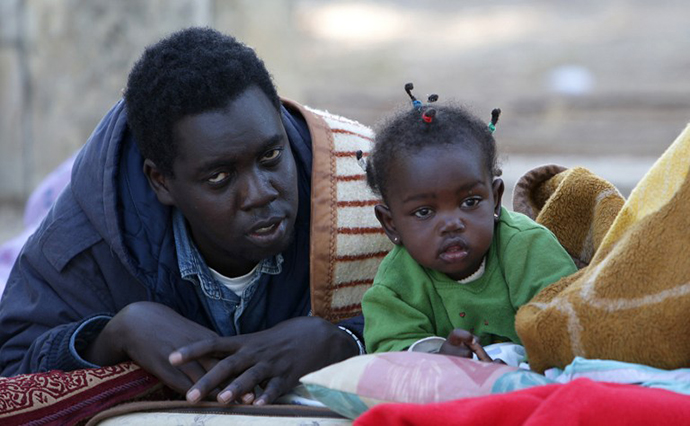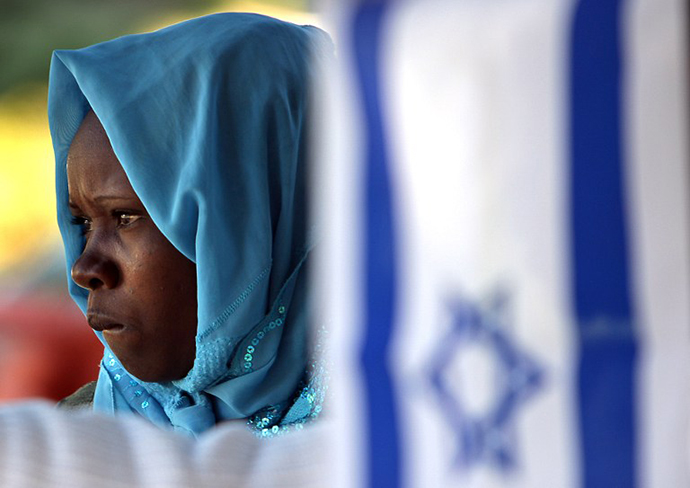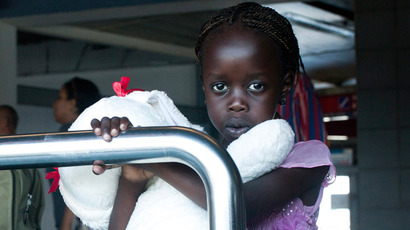Israel exploited loophole to take 1,000 DNA samples from African refugees

Israeli police have admitted to collecting some 1,000 DNA samples from African refugees who have arrived in the country since 2012, after using a security-related clause to open criminal cases against some of the immigrants.
The news was comfirmed by Commander Eran Kamin of the
Investigations Division, who reported on the issue to a Knesset
committee on Tuesday.
The issue was first revealed in an article in Haaretz, which said that police officials had earlier had their request for collecting refugees’ DNA samples rejected by Knesset Committees. To bypass this rejection, the police opened criminal cases against the African migrants – they had technically entered the country illegally, which the police then classified as a ‘security-related’ crime.
"We are aware that those entering Israel have had unpleasant experiences, to say the least, but still, we're aware of the fact that they broke the law. The law defines them as infiltrators," Kamin said, according to Haaretz.
In 2012, Israeli police collected more than 600 samples. However, they have not solved any reported crimes as a result of this DNA collection practice, Haaretz said.

Police officials claim they are not creating a refugee database,
and that the personal data they receive from migrants are placed in
a general pool. African immigrants are nevertheless reportedly
angered by the procedure, which they have slammed as
discriminatory.
Human rights activists in Israel strongly oppose the practice: “The criminal process is meant to reach the truth and punish offenders who have been legally convicted. But in terms of asylum-seekers, police are making a different use entirely of the criminal proceeding,” said attorney Asaf Weitzen of the Hotline for Migrant Workers. He added that police were “creating a new law and suiting it to a regime in which there is no longer a need for courts, legislators or public opinion.”
Alva Kolan of the Association for Civil Rights in Israel said
this is "a cynical use of the Prevention of Infiltration Law,
and squarely contradicts the International Convention Relating to
the Status of Refugees, which explicitly states that infiltration,
in itself, cannot be considered a criminal
offense.”
The DNA collection is another facet of the Israeli government’s crackdown on immigrants coming from such African nations as Libya, Sudan, South Sudan, Ethiopia and Eritrea. After being dubbed “infiltrators” and a threat to state security, they are encouraged to return to their native countries. Many of those unwilling to return home face indefinite jail terms.

Israel has regularly been accused of deporting Sudanese migrants
back to their homeland, where visiting or living in Israel is a
crime. In February, Israel reportedly forced at least 1,000
Sudanese to return home.
Israel described the deportations as “voluntary leave,” which the UN Refugee agency dismissed as unlikely. "Deporting Sudanese to Sudan would be the gravest violation possible of the refugee convention that Israel has signed – a crime never before committed," the UN representative to Israel Michael Bavli said.
In August 2012, a report by the London-based Bureau of Investigative Journalism revealed that Israel deported Sudanese asylum seekers by issuing documents with intentionally incorrect nationalities. Having no repatriation agreement with Sudan, Israel gave more than 100 Sudanese nationals passports or birth certificates labeling them citizens of South Sudan, which seceded from Sudan in 2011, the report stated.














